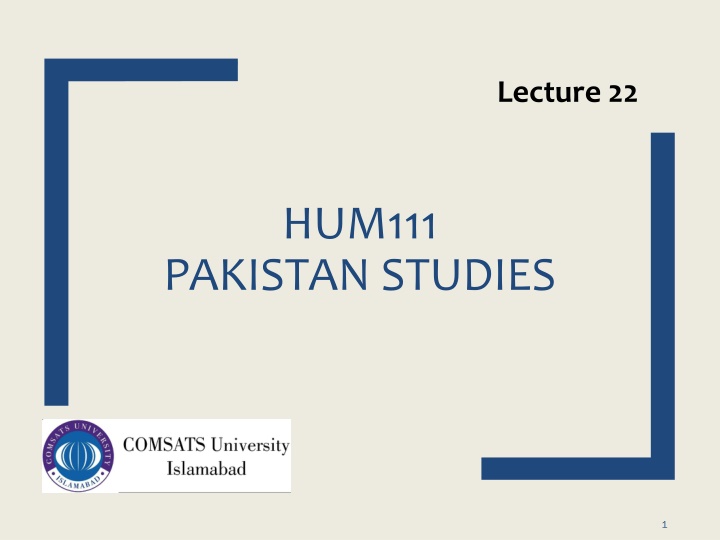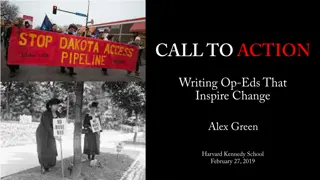
Challenges Faced by Political Parties in Pakistan
Explore the challenges encountered by political parties in Pakistan, including the lack of political vision, lost direction in the 1990s, weaknesses such as fragmentation and ineffectiveness, and the struggle with citizen participation and mutual understanding.
Download Presentation

Please find below an Image/Link to download the presentation.
The content on the website is provided AS IS for your information and personal use only. It may not be sold, licensed, or shared on other websites without obtaining consent from the author. If you encounter any issues during the download, it is possible that the publisher has removed the file from their server.
You are allowed to download the files provided on this website for personal or commercial use, subject to the condition that they are used lawfully. All files are the property of their respective owners.
The content on the website is provided AS IS for your information and personal use only. It may not be sold, licensed, or shared on other websites without obtaining consent from the author.
E N D
Presentation Transcript
Lecture 22 HUM111 PAKISTAN STUDIES 1
HUM 111 PAKISTAN STUDIES Lecture The Problems of Political Parties in Pakistan (Part B) Dr. Sohail Ahmad 2
The problems of Political Parties (Cont.) The Lack of Political Vision The emergence of political parties is related to material and cultural advancement of society in which citizens are free to form groups and associations and to articulate their demands and problems. The low level of such advancement and the lack of freedom in Pakistani society, particularly during the first decade, constrained the development of parties; thus, the phenomenon led to their myopic vision. 3
The Problems of Political Parties (Cont.) The lost vision In 1990s the course of political development changed. The political direction and vision to enter the 21st century was lost. Major political parties, particularly the Pakistan People s Party and the Muslim League, set their direction for power struggle, floor crossing and corruption throughout the decade. The lack of vision weakened them to the extent that the governments of Benazir Bhutto and Nawaz Sharif were struck by the dissolution syndrome, twice each. 4
The Problems of Political Parties (Cont.) The weakness of political parties in Pakistan is evident from their massive proliferation and high rate of mortality, their fragmentation into small and ineffective factions, their regionalization and ethnicization with appeal only to a limited number of citizens. This also reflects their indifference to formulate coherent programmes and policies for winning the support of the broad strata of society. With weak institutional roots in society, parties are amorphous groups tied together by their leaders; some charismatic, others not, some becoming party leaders because of their wealth and the others due to inheritance. 5
The Problems of Political Parties (Cont.) Lack of citizen's participation The political parties can hope to play a meaningful role only if they succeed in gathering the masses around them. There are rarely any membership campaigns conducted by the parties. Even those who joined them on one or the other pretext have been demoralized. Part of the problem lies in the inner working of these parties, which does not provide a sense of participation to the members. 6
The Problems of Political Parties (Cont.) Lack of mutual understanding Pakistan s political parties lack mutual trust and understanding. The culture of political dialogue has never taken roots in Pakistan. Only the circumstances brought the Pakistan People s Party and the Muslim League together into the Alliance for the Restoration of Democracy to put pressure on president Musharraf. Mainstream as well as the ethno-regional parties lack internal debate over policy alternatives. Their priorities and preferences are not an outcome of household debates and discussion. Rather, they are identified with their leaders. 7
Way Forward Accountable democracy cannot function in Pakistan until drastic changes are made in the formation and functioning of political parties, which can faithfully represent and serve the people through a transparent political system. Educated professional and progressive minded middle class citizens do not have any chance to participate in the democratic process. Our failure to recognize the need to restructure the political party system on fundamental principles of democracy has destroyed our national institutions by corruption and nepotism. 8
Way Forward (Cont.) Lack of accountability by the elected autocratic rulers during the past decades has become the accepted feature of our national polity. The chasm between the poor and the rich has reached alarming proportions. By squandering public funds on dubious projects and levying ever-increasing taxes to pay for their extravagant lifestyle, rulers have totally demoralized and crippled the tax paying middle class, which is the productive segment of any developing democratic society. 9
Way Forward (Cont.) Democracy Democracy should start at the grassroots level and nothing should be imposed on the people. All political parties cadres should elect their basic mohallah, ward, city, province, and national units. These basic units or tiers of a political party should remain in the charge of those workers who are elected under a system that allows members of the party to express their choices through ballots. These units should elect the city leaders who, in turn, form an electoral college for the election of district, provincial and national party leaders. 10
Way Forward (Cont.) There should also be a constitutional requirement for political parties to hold elections at least once in two years under the direct supervision of the independent and neutral Election Commission. And the commission should be empowered to disqualify a political party from contesting the national, provincial and local elections if it does not have elected office bearers. 11
Way Forward (Cont.) Accountability There is a need to create permanent mechanisms for continued accountability within the democratic structures of the state and the parties. There is also a need to look at the problem of corruption in depth and take steps to root it out because not only are the politicians corrupt but the whole of our society is steeped in corruption. 12
Way Forward (Cont.) Financial resources Parties are weak because they lack financial resources. Electoral candidates are relatively strong and do not depend on their respective parties for funding. Unless parties in Pakistan engage themselves in fund-raising activities and thereby finance their electoral and non-electoral activities like political education and training, they will continue to woo local influence for support rather than lend their support to promising individuals within their folds. Secondly, the country needs to debate and encourage the culture of political donations. 13






















